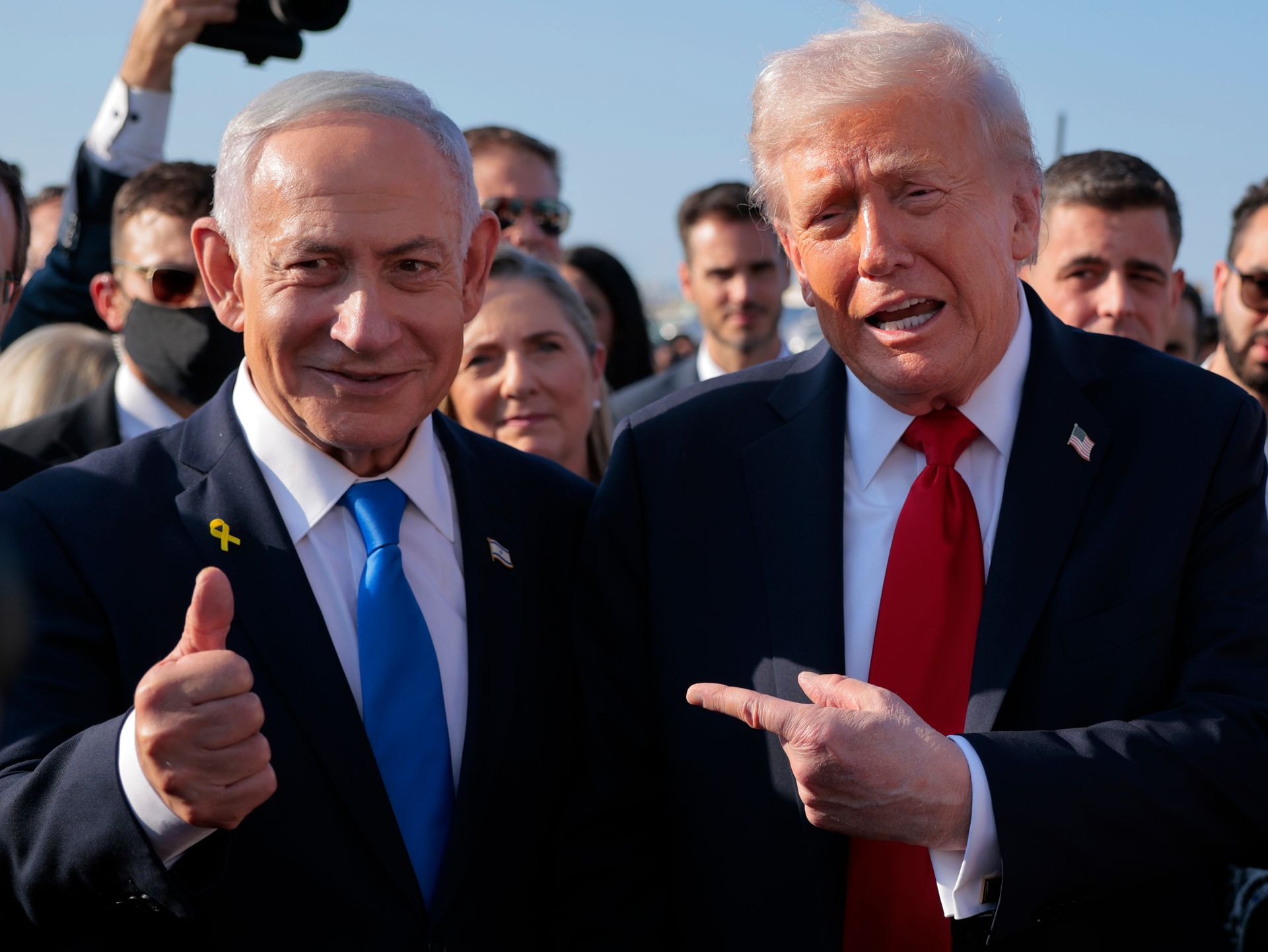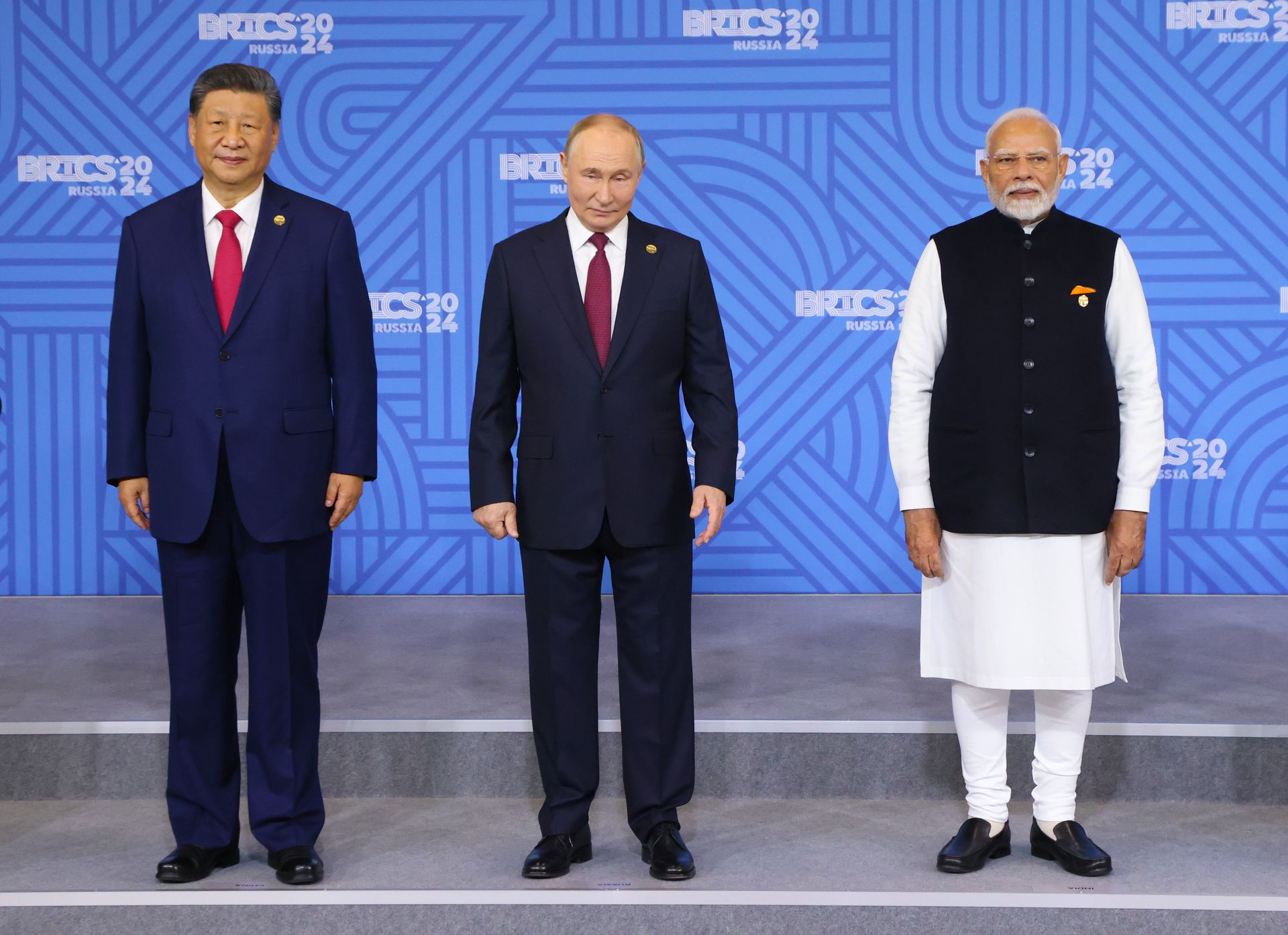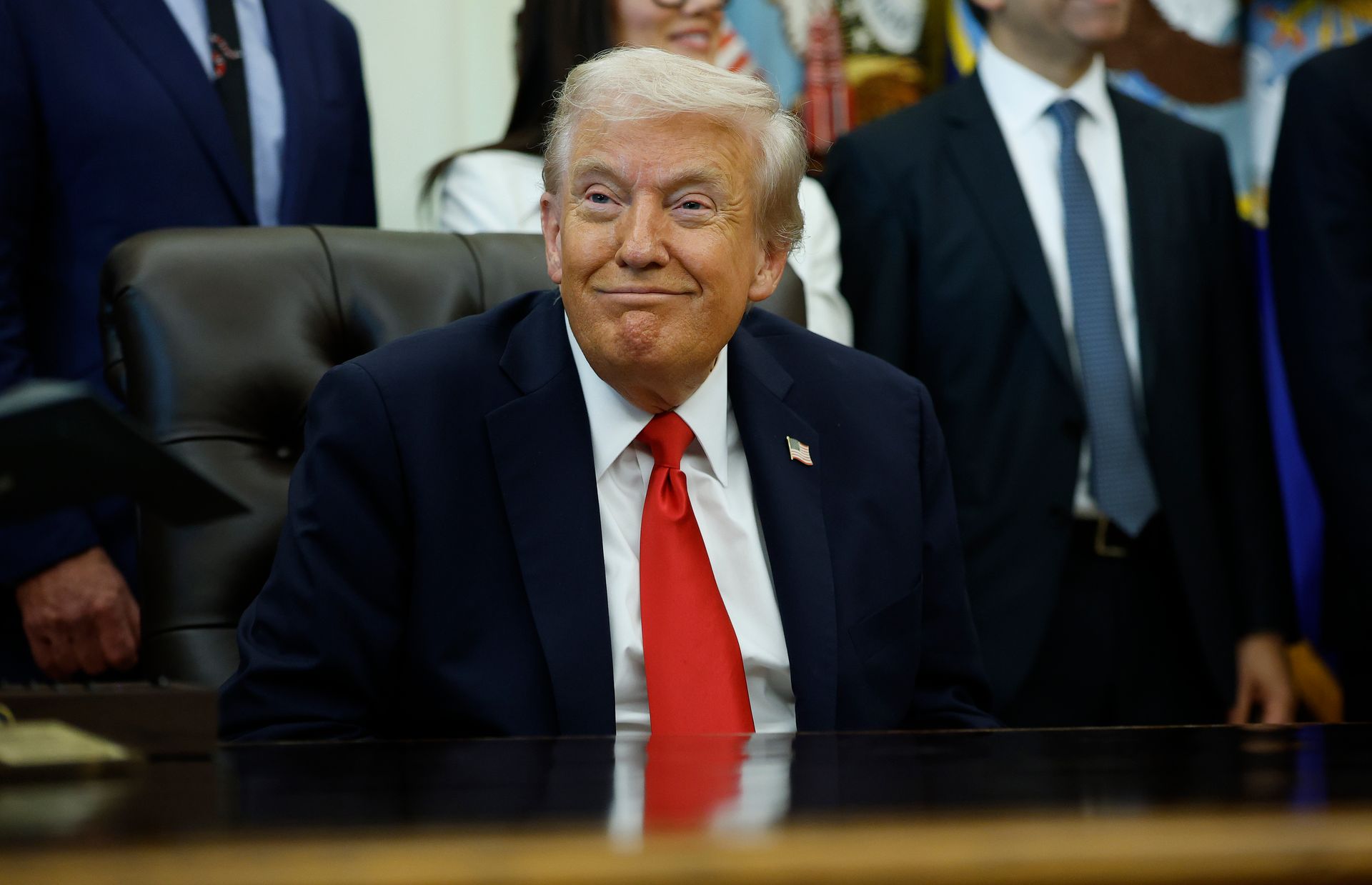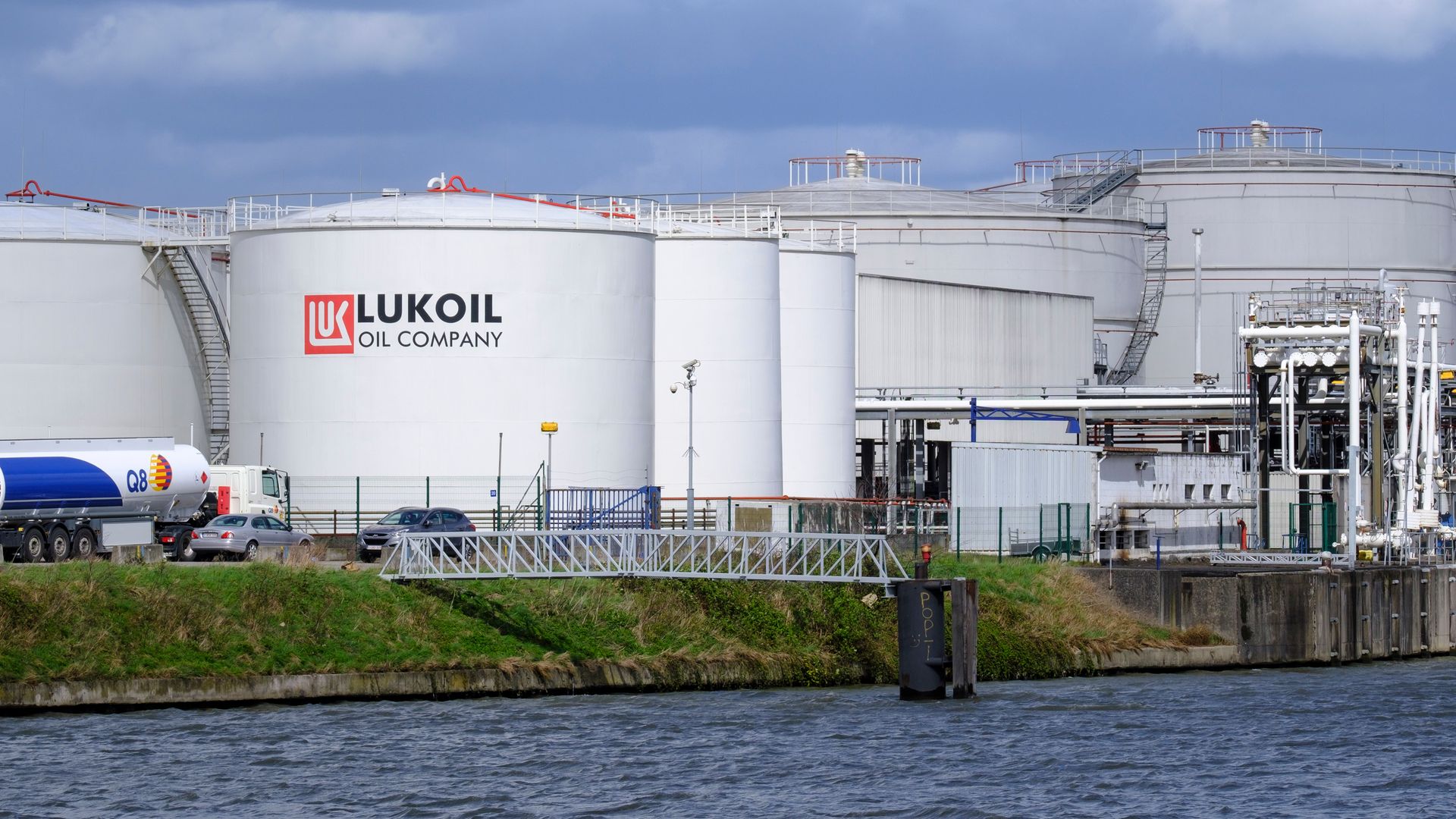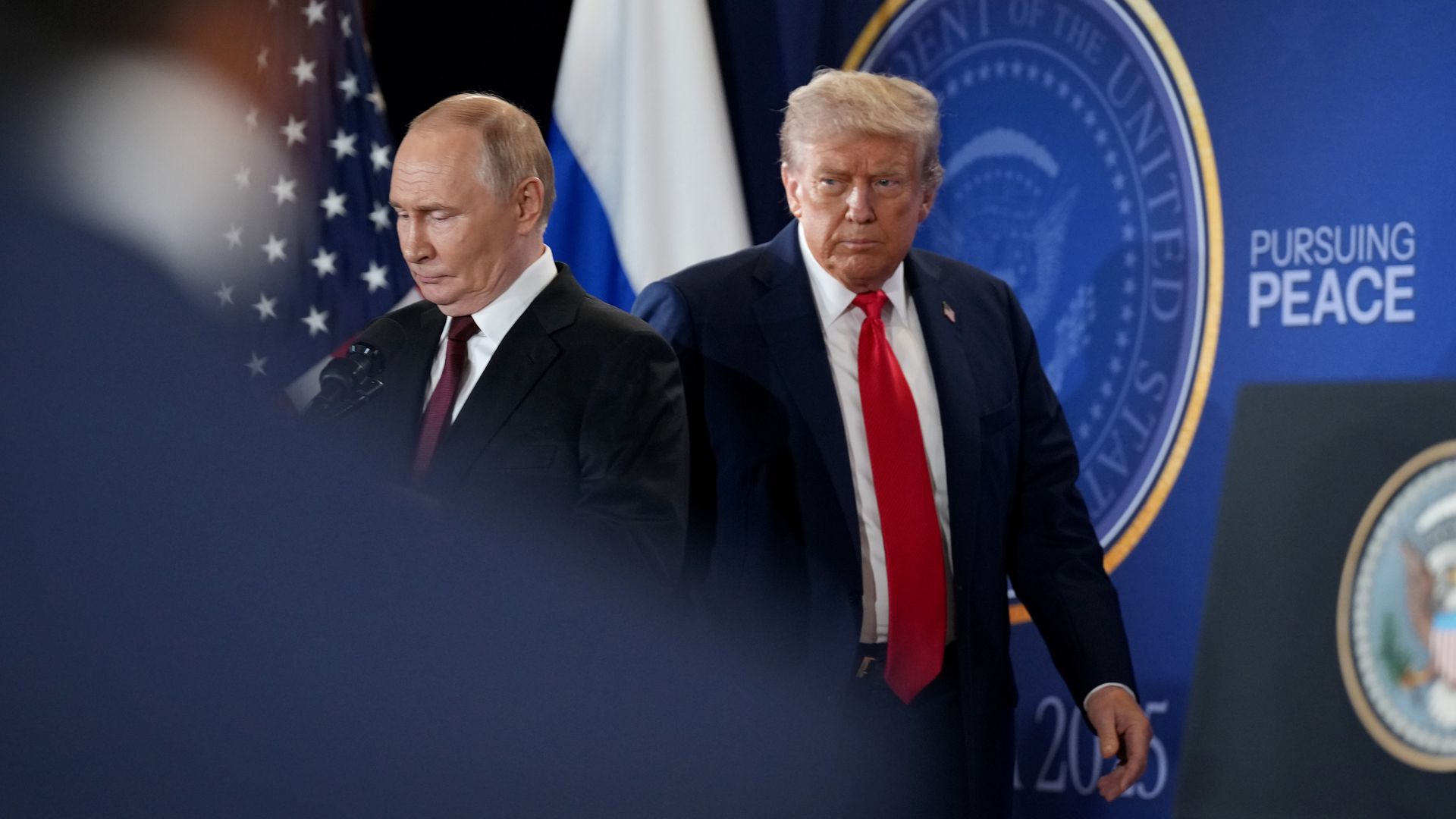Putin's pressure campaign on Trump exposes Kremlin’s limits
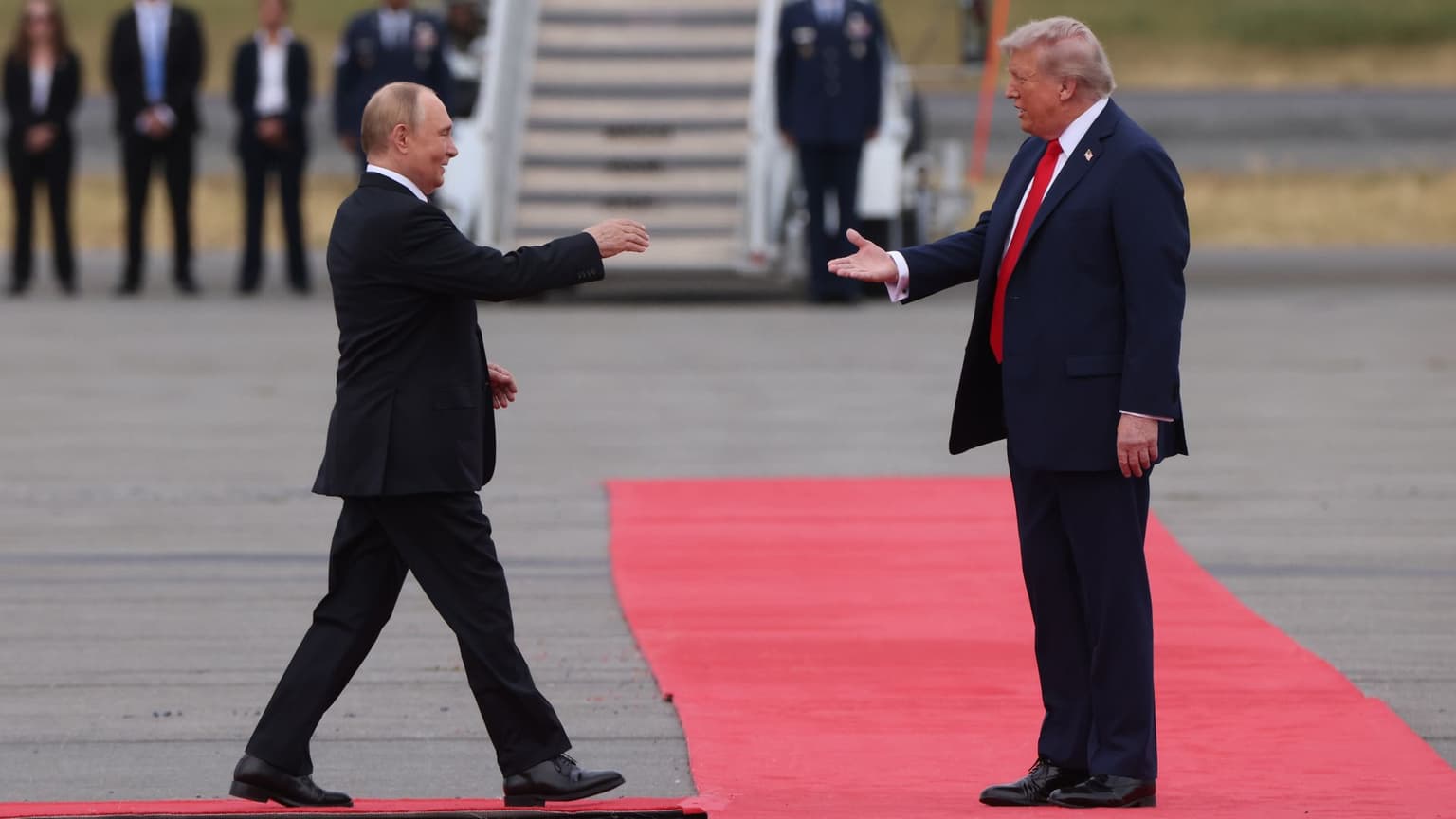
U.S. President Donald Trump and Russia’s President Vladimir Putin meet for their summit on the war in Ukraine at a U.S. air base in Anchorage, Alaska, U.S. on Aug. 15, 2025. (Contributor / Getty Images)
Since U.S. President Donald Trump took office in January, Russia has used a wide range of tools to sway him to its side.
"It's a mixture of flattery (Trump deserved the Nobel Prize), threats (Tomahawks will mean a new level of escalation and do serious damage to U.S.-Russia relations), promises (great trade and economic deals are just waiting around the corner once there is peace), and manipulation (Ukraine and Europe are playing Trump and have undermined the positive momentum after the Alaska summit)," Stefan Wolff, professor of international security at the University of Birmingham, told the Kyiv Independent.
Russia's strategy of keeping Trump in a favorable posture has worked for some time. Yet, experts say, Russia has overplayed its hand.
By refusing to accept any of Trump's proposals, such as his calls for an unconditional ceasefire, freezing the front line, or softening the Kremlin's demands, Moscow appears to have missed every opening offered by the White House.
It also appears that Moscow doesn't really care.
"The logical guess is that (Russian President Vladimir Putin) hopes to manipulate and neutralize Trump, but that gaining his objectives against Ukraine is a higher priority for him, which he thinks Russia may achieve with continued military effort, so he will accept more American pressure if he fails to control Trump," Richard Betts, professor emeritus of war and peace studies at Columbia University, told the Kyiv Independent.
Flattery works
To sway Trump, Putin often uses flattery.
Putin praised Trump in August by backing his claim that the U.S. leader would have prevented Russia's war against Ukraine if he had been president instead of Joe Biden in 2022.
On Oct. 10 and again on Oct. 16, Putin praised the U.S. president for brokering a ceasefire deal between Israel and Hamas — a negotiation from which Moscow was completely excluded.
"(Trump) is a sucker for flattery; this was clear from the earliest days of his first administration when he went to Saudi Arabia and reveled in the extravagant display honoring him that the Saudis presented," Betts said.
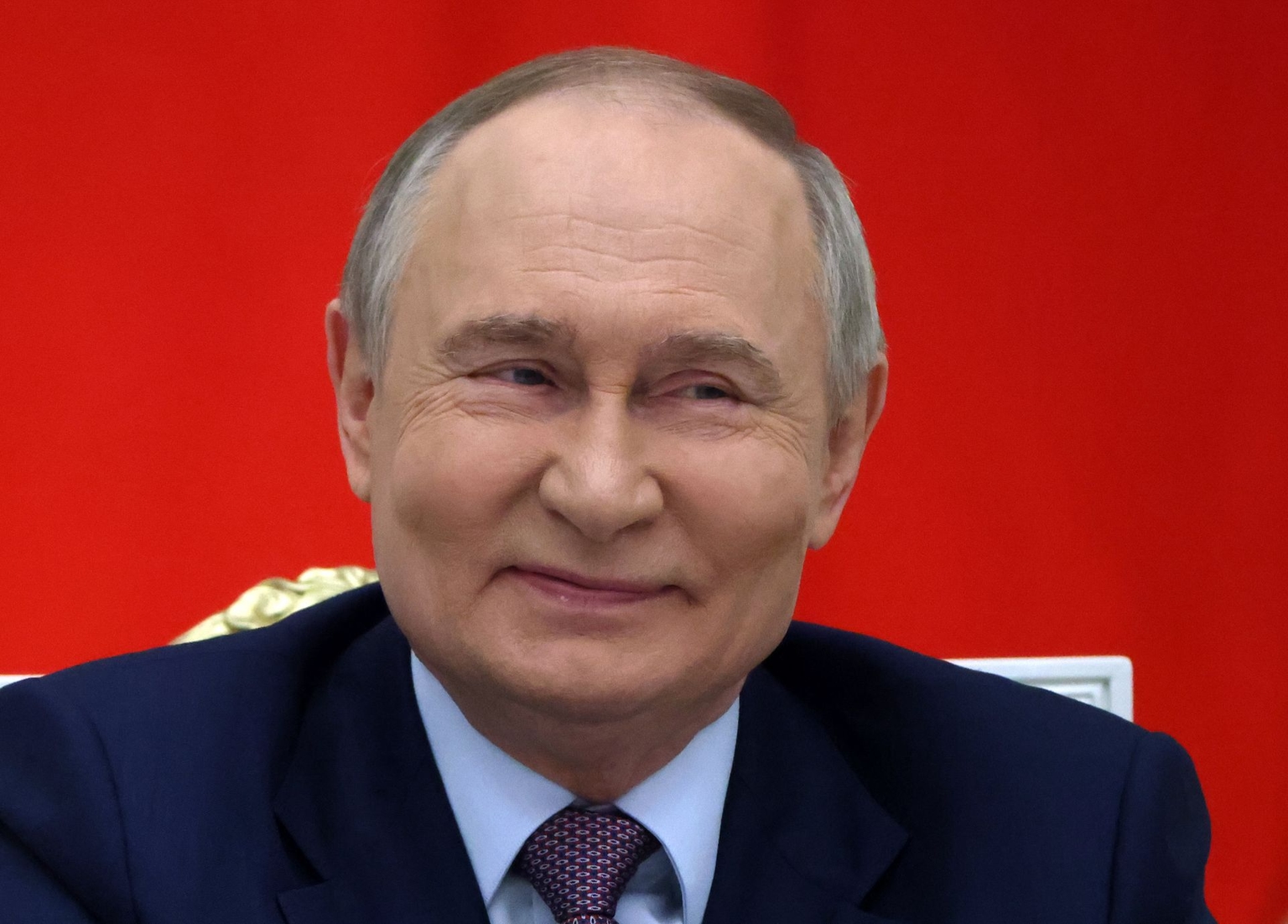
Economic cooperation
Another trick Putin uses to sway Trump to his side is his promises of economic cooperation between Russia and the U.S.
"(Putin's Special Envoy Kirill) Dmitriev keeps talking about these huge possibilities for commercial and economic relations between the United States and Russia," Steven Pifer, a former U.S. ambassador to Ukraine, told the Kyiv Independent.
In February, Putin said U.S. companies could help develop aluminum production in Siberia and help mine rare earth metals in Russian-occupied Ukraine.
Bloomberg also reported in February, citing sources, that the U.S. and Russia were considering joint exploration of the Arctic.
Meanwhile, Dmitriev proposed on Oct. 16 that Elon Musk's tunneling company could build a "Putin-Trump tunnel" between eastern Russia and Alaska. Trump called the idea "interesting" on Oct. 17.
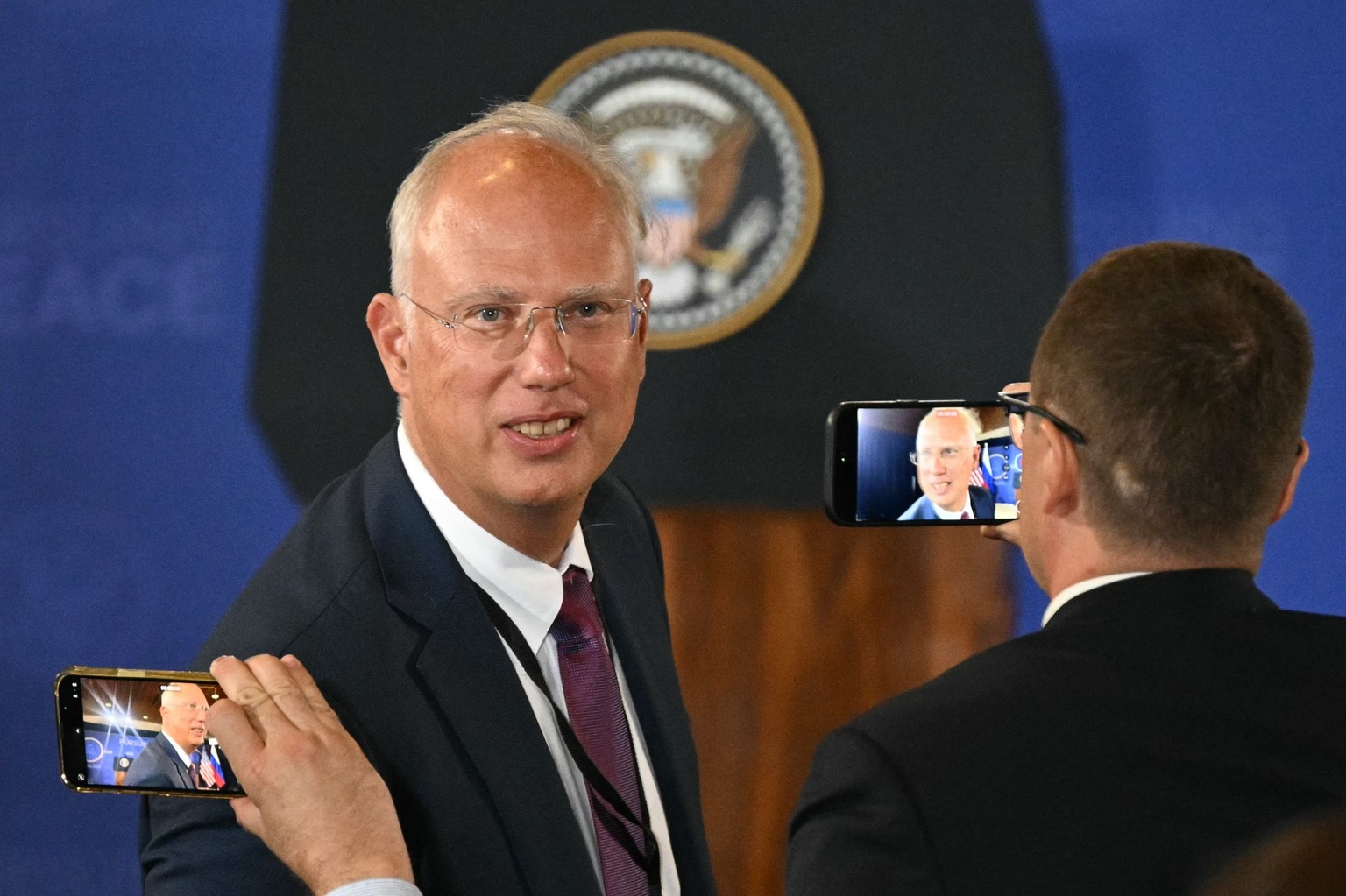
Fear of escalation
Analysts also say that Putin is using the fear of escalation as leverage against Trump.
"Trump's decision-making is based on the following dilemma," Ryhor Nizhnikau, a Russia expert at the Finnish Institute of International Affairs, told the Kyiv Independent. "To force Moscow to seriously consider negotiating a ceasefire, Trump needs a better bargaining position vis-à-vis Moscow. Yet, he does not want to use the few 'trump cards' in his pocket, because he is afraid of escalation. Russia will not take him seriously until he backs his warrior rhetoric up with an actual show of strength."
Trump is said to be interested in a peace settlement between Ukraine and Russia, while Putin is interested in complete victory.
Concerns about the war potentially escalating into a nuclear conflict are one of the most powerful tools at Putin's disposal.
Russia has regularly used nuclear threats against Ukraine and the West as a bargaining chip. Most recently, Putin oversaw a test of Russia's nuclear forces on land, sea and air on Oct. 22 to rehearse their readiness and command structure.
"Trump is afraid of nuclear technology and nuclear weapons as a whole," Oleksandr Kraiev, head of the North America program at the Ukrainian Prism think-tank, told the Kyiv Independent.
Putin's military posturing
Putin is also trying to persuade Trump that Russia has the upper hand in the war, analysts say.
"Putin can scare Trump into believing that Russia cannot be defeated," Kraiev said.
Volodymyr Dubovyk, head of Odesa National University's Center for International Studies, also argued that "Putin keeps saying that Russia's victory is inevitable."
"Europeans and (President Volodymyr) Zelensky try to disprove this with facts and maps, and then Putin launches into his convincing enterprise," he added. "It is like tugging Trump in different directions from time to time."
Speaking during a visit to a military hospital in Moscow on Oct. 29, Putin claimed that two of the fiercely contested cities — Pokrovsk in Donetsk Oblast and Kupiansk in Kharkiv Oblast — were encircled.
Putin added that Russian forces would be prepared to cease fire in the respective areas "for a few hours" so that Ukrainian and foreign journalists could enter, speak to Ukrainian soldiers, and "confirm for themselves the state that these surrounded forces are in."
Ukrainian commanders' reports, as well as open-source data, show that Putin's claim of a complete encirclement is still far from reality.
Zero-sum game
Although Putin's tricks appeared to work for some time, there are obvious limitations — Trump is said to be interested in a peace settlement between Ukraine and Russia, while Putin is interested in complete victory.
The plans for a Putin-Trump meeting were shelved on Oct. 21, with the U.S. president saying that he did not want a "wasted meeting" with Putin. He said that a key problem was Moscow's refusal to cease fighting along the current front line.
Trump went even further on Oct. 22, when he imposed sanctions on Russia's two largest oil companies, Rosneft and Lukoil.
Putin's envoy Dmitriev arrived in the U.S. on Oct. 24 in an effort to repair bilateral relations, but so far, no progress has been made.
Charles Kupchan, a senior fellow at the Council on Foreign Relations, said that "the Trump-Putin meeting appears to have been canceled following the call between (Russian Foreign Minister Sergei) Lavrov and (U.S. Secretary of State Marco) Rubio (on Oct. 20)."
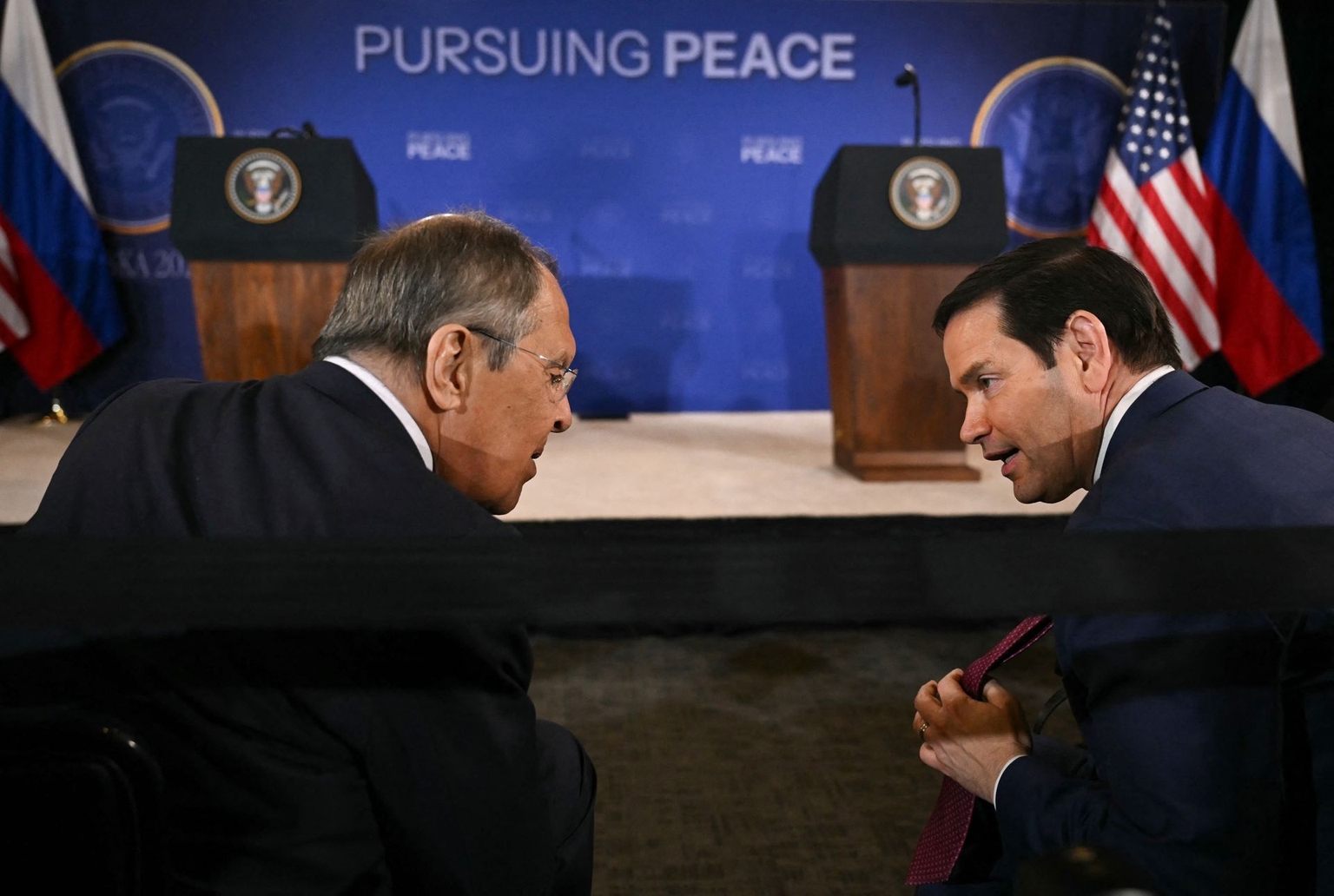
"His conversation with Lavrov seems to have convinced Rubio that Russia is still pursuing its maximalist war aims and that another meeting between Trump and Putin, like the meeting in Alaska, would fail to produce any meaningful progress," he added.
Nizhnikau also said that "most likely (Trump) realized that without 'substance on the table' it would be another public humiliation for him — Alaska 2.0 — which he clearly does not want."
"He was clearly offended by the perception of Alaska in the West and does not want to repeat that," he added.
Why doesn't Russia accept Trump's overtures?
The key problem is that Russia has constantly rejected Trump's proposals for a ceasefire and freezing the front line. Instead, Moscow has stated that it would agree to a ceasefire or peace deal only if it amounted to Ukraine's de facto capitulation.
Russia's latest demands include Ukraine's full withdrawal from parts of the country's Donetsk Oblast that it still controls and a ban on any proper security guarantees for Kyiv, such as foreign military presence or NATO membership.
"Obviously Russia's perceptions, calculations and goals have not changed at all so far: the war is ideology driven and Trump's 'carrots' do not matter," Nizhnikau said. "Moscow still firmly believes that time and resources are on its side and that it is winning the war."
Russia believes that "the longer they continue the war, the better it will be for their strategic goals in Ukraine, i.e., better geospatial positions for the military, more territorial gains, a more worn-out Ukraine, and so on," according to Nizhnikau.
"So, in their calculations, they don't have to accept such a deal at this moment at all, and, if they are forced in the future, the same type of deal will still be on the table, including hypothetical deals with the U.S.," he added.
William Wohlforth, a professor focusing on international relations at Dartmouth College, also argued that "Putin assesses he can get what he wants in Ukraine by continuing the war."
"He says he believes the U.S. and Europe are declining powers and so will ultimately have to bend to Russia's determination to dominate Ukraine," he added. "He says he is interested in normal relations with the U.S., but apparently only if the U.S. abandons Ukraine."

